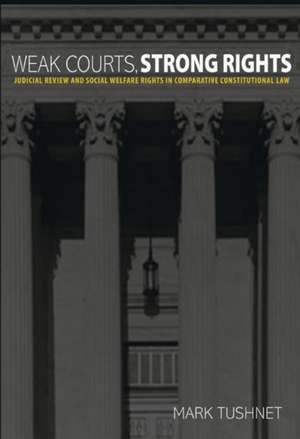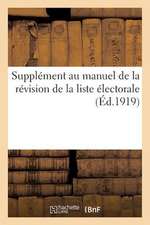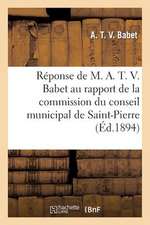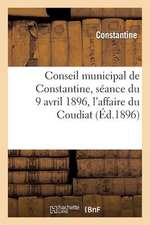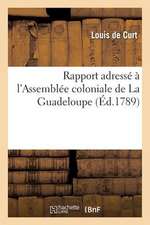Weak Courts, Strong Rights – Judicial Review and Social Welfare Rights in Comparative Constitutional Law
Autor Mark Tushneten Limba Engleză Paperback – 20 aug 2009
Under strong-form judicial review, as in the United States, judicial interpretations of the constitution are binding on other branches of government. In contrast, weak-form review allows the legislature and executive to reject constitutional rulings by the judiciary--as long as they do so publicly. Tushnet describes how weak-form review works in Great Britain and Canada and discusses the extent to which legislatures can be expected to enforce constitutional norms on their own. With that background, he turns to social welfare rights, explaining the connection between the state action or horizontal effect doctrine and the enforcement of social welfare rights. Tushnet then draws together the analysis of weak-form review and that of social welfare rights, explaining how weak-form review could be used to enforce those rights. He demonstrates that there is a clear judicial path--not an insurmountable judicial hurdle--to better enforcement of constitutional social welfare rights.
Preț: 224.55 lei
Nou
Puncte Express: 337
Preț estimativ în valută:
42.97€ • 45.95$ • 35.83£
42.97€ • 45.95$ • 35.83£
Carte disponibilă
Livrare economică 28 martie-11 aprilie
Livrare express 13-19 martie pentru 27.92 lei
Preluare comenzi: 021 569.72.76
Specificații
ISBN-13: 9780691143200
ISBN-10: 069114320X
Pagini: 312
Dimensiuni: 163 x 231 x 18 mm
Greutate: 0.41 kg
Editura: Princeton University Press
Locul publicării:Princeton, United States
ISBN-10: 069114320X
Pagini: 312
Dimensiuni: 163 x 231 x 18 mm
Greutate: 0.41 kg
Editura: Princeton University Press
Locul publicării:Princeton, United States
Notă biografică
Mark Tushnet is the William Nelson Cromwell Professor of Law at Harvard Law School. His many books include The New Constitutional Order and Taking the Constitution Away from the Courts (both Princeton). He is a fellow of the American Academy of Arts and Sciences.
Descriere
Shows how creating weaker forms of judicial review may actually allow for stronger social welfare rights under American constitutional law. This book describes how weak-form review works in Great Britain and Canada and discusses the extent to which legislatures can be expected to enforce constitutional norms on their own.
